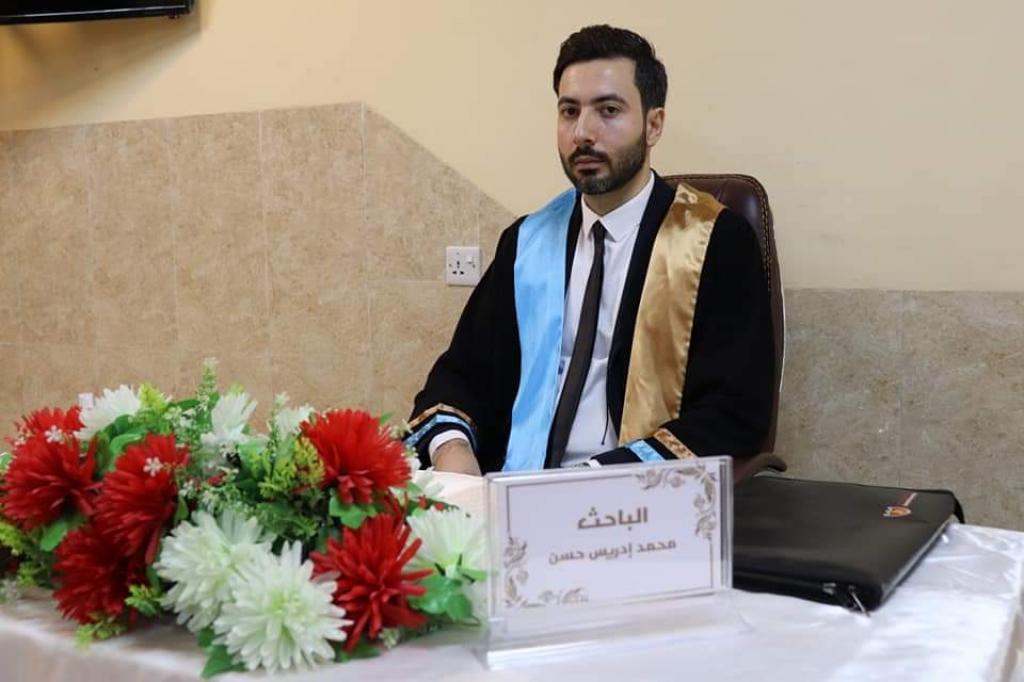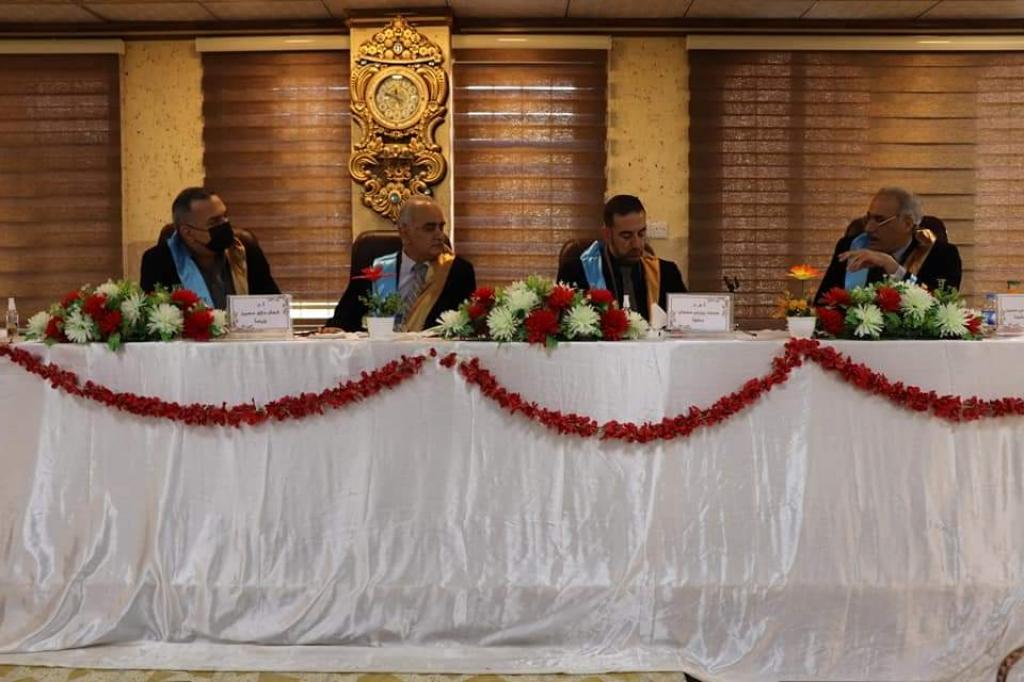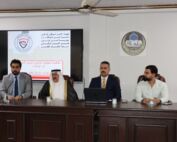18 November، 2020
” A Cognitive-Pragmatic Account of Mosuli Arabic Proverbs with Special Reference to English “

On Wednesday, the 18th of November, the discussion of the MA thesis entitled ” A Cognitive-Pragmatic Account of Mosuli Arabic Proverbs with Special Reference to English ” by the student Muhammad Idress Hassan was held at the hall of the of Quranic sciences department.The discussion committee involved the following respectable academic members:
1- Prof. Dr. Kamal H. Hussein. (The chairman).
2- Asst. Prof. Dr. Muhammad Barjes. (Member).
3- Asst. Prof. Ahmed Bashir. (Member).
4- Lecturer. Dr. Ismael F. Hussein. (Member & supervisor).The discussion committee approved the thesis with minor corrections.Proverbs form an important part of any language and culture. The present study aims to analyse Mosuli Arabic proverbs from a cognitive-pragmatic perspective. In this sense, it attempts, first, to explore the mental processes that help in understanding a proverb in a context, and, second to identify the pragmatic functions realized in the illocutionary acts, the accompanying prelocutionary effects performed in the selected proverbs. The data analysis consists of forty proverbs that have been selected randomly from native speakers. It is hypothesized that conceptual mapping is the mental process that is used in interpreting proverbs and Mosuli Arabic proverbs are mostly directive illocutionary acts. The study used a revised model for the data analysis that covers two perspectives of proverbs, namely: cognition and pragmatics. This model is based on some theories that are taken from, first, Lakoff and Turner’s (1989), the Great Chain Metaphor theory that helps in exploring the cognitive mechanisms in the selected samples, second, Searle’s (1979) classification of illocutionary speech acts that are used to analyse the pragmatic functions of the selected proverbs. This study concludes that mapping across conceptual domains is the mental process in interpreting proverbs and that Mosuli Arabic proverbs can perform different kinds of speech acts.








